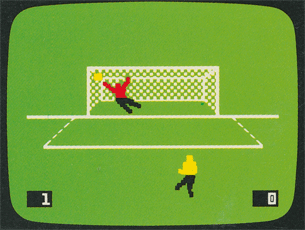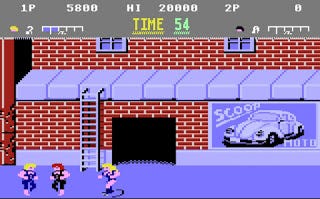No. Let's see to your arguments.
javi741 said:
IMO yes Nintendo did save gaming, some people think they didn't for several reasons. But I'll counter argue the common reasons why people don't believe Nintendo saved gaming:
"If Nintendo didn't do it someone else would have"
-This argument completely based off of faith, and you'd need to have a ton of faith that a company would've entered a dead and dying video game industry after the crash. After the 1983 crash, literally no one wanted to have anything to do with video games anymore, from companies to consumers and retailers. If the video game industry was DEAD DEAD with no one, more specifically in NA interested in video games anymore, why in the world would a company attempt to market a video game system if no one is interested. To most companies, it wouldn't have made sense from a business standpoint as many companies and analysts at the time would consider that a company suicide. Even if a company did somehow have faith they could revive the gaming industry, the amount of huge hurdles a company would have to jump through just to get a video game system into retailers and in the hands of the consumer would likely have been too much for any company to handle. It literally took Nintendo to give NES's for free to retailers with Nintendo doing all the work when it comes to displaying the system to get retailers to finally stock the NES, retailers thought Nintendo was crazy for doing this, with even one store manager saying "It's your funeral" I'm sure 99.9% of companies would've given up on reviving the industry knowing all the hurdles in front of them. Even if that company SOMEHOW did revive video games(which is extremely unlikely), do you think now irrelevant companies like Atari or Sega would've kept it afloat and as big for so long?! They're now considered irrelevant companies for a reason, they're run by idiots. How about Sony & Microsoft, two companies who had NOTHING to do with video games until Nintendo got the industry big. They wouldn't have even attempted video games if it weren't for Nintendo's influence.
"Only the console market crashed, people just moved on to PCs & Arcades after the crash, video games were still popular"
-This is a flat out false statement, video games as a whole were dead ESPECIALLY in NA. Most people completely moved on from video games, believing it to be a fad. Whether on arcade, PC, or console, video games were dead all around. Proof of this is looking at global gaming revenue between 1982-1985, where the ENTIRE video game industry revenue was dropping substantially all across the board, not just on consoles. I see most people try to argue that PC gaming revenue between 1982-1985 was going up which supposedly shows that video games weren't dying and that people were just moving from console to PC, however they ignore the fact that despite PC revenue going up, the entire industry revenue was drastically dropping globally which shows that the majority people left video games in general with the EXTREMELY SMALL minority moving to PC. Showing that video games as a whole were dying. Here's the chart that proves my point right here:

"The Video Game Crash Only Happened in NA, other regions were still playing games"
-I won't deny that the crash technically only happened in NA, however it's important to point out usually when a crash happens in a major market like the U.S, it's only a matter a time before the affects of the crash spread onto other regions, and with no real major console player in the other regions with strict quality control and less video game companies in general, it's likely the crash would've spread to the other regions as well. Also, while the crash did only happened in NA, global video game revenue was dropping globally, proving that the industry was declining overall and would've continued to go in a downward spiral if it weren't for the NES. The industry would be no where near as big as it is today globally without Nintendo, and that's a fact.
|
"If Nintendo didn't do it someone else would have"
You say: "After the 1983 crash, literally no one wanted to have anything to do with video games anymore, from companies to consumers and retailers."
This is obviously wrong. True, some companies that had entered the market from other sides like Fairchild and Mattel left the market and fell back on their core businesses. But with Mattel the story becomes already more complicated. Citing from Wikipedia:
"Former Mattel Electronics Senior Vice President of Marketing, Terrence Valeski, understood that although losses were huge, the demand for video games increased in 1983. Valeski found investors and purchased the rights to Intellivision, the games, and inventory from Mattel. A new company, Intellivision Inc, was formed and by the end of 1984. Valeski bought out the other investors and changed the name to INTV Corporation."
https://en.wikipedia.org/wiki/Intellivision#Competition_and_market_crash
Intellivision kept on going until 1990. Why did they stop 1990? Let's see:
"Licensing agreements with Nintendo and Sega required INTV Corporation to discontinue the Intellivision in 1990."
So Intellivision leaving the market wasn't a direct reaction to the crash, it was because of the new competitors Nintendo and Sega.
Magnavox was already since 1974 a subsidiary of Philips. Philips was handling the european distribution of Magnavox Odyssey² under the name Philips Videopac G7000. They followed that up with Philips Videopac+ G7400 and that with the Philips CD-i and the Philips MSX. So also Philips was willing to stay in the market. But Nintendo and Sega were more successful. So Philips ended up cooperating with Nintendo by providing their CD-i for the SNES.
Atari had difficulties as a company and Arcade part and home consumer part were split, but they stayed in the market. The Atari 7800 released in 1986, the Jaguar in 1993. But Atari was unable to compete with Nintendo and Sega.
So yes, without Nintendo we would've seen the market relived by Atari, Philips, Intellivision and Sega. Only the competition with Nintendo and Sega forced the other companies out of the market, not the crash.
"Only the console market crashed, people just moved on to PCs & Arcades after the crash, video games were still popular"
Interesting graphics you have, but it doesn't support your statement. Arcade revenue did also go down as you point out. But it moves independently of the home console market. Look at your graph, Arcade already started contracting as home console revenue was still climbing. Arcade also stopped at around it's former size, while home console revenue completely collapsed in 1985. But the most interesting part is that at the time both Arcade and Home console dropped, the PC-market grew. Only at the point the home console market recovered, the PC market shrinked again. It seems PC-market and home console market were vying for the same customers. As the console market crashed, the gamers went to PC.
But the revenue is much lower. True. But that the graph is about revenue somehow downplays the importance of the PC-market. As on PC was much more piracy (yes, believe me, I was there back then) and lower game prices (lots of Shareware and free demos, think that Doom released the complete first chapter (of three) completely without cost) the revenue is much smaller as on other platforms, but that hides the amount of players and games. As development cost and distribution is much lower on PC, it also was much more simple to have a sufficient business with this much smaller revenue. That is why this small revenue bar hides a plethora of games and players.
More importantly, as the entry hurdles were so low, the PC-market created life-long players and a lot of game developers.
So in conclusion: if the home console market hadn't recovered, the PC-market would've kept on growing. Slowly but solidly.
"The Video Game Crash Only Happened in NA, other regions were still playing games"
The world wasn't as globalized back then, as it is today. You claim the crash would've burned into other countries, but Nintendo itself is proving you wrong. The Famicom released 1983 in Japan, just as the crash was starting in the US. It didn't affect the japanese market, which hadn't for the most part even seen the american home consoles. But even besides Nintendo a lot of Japanese companies developed, mostly for Arcade (Konami, Bandai) or the differing PC-platforms available in Japan (Square, Enix).
In europe the american consoles had some presence, but the home console market never really started there until the Playstation. If there is no market to begin with, it cannot crash. Europe at that time mostly started playing on PC, as you can see with the plethora of european gaming comanies starting at that time with PC games:
- Ubisoft: founded 1986 in France
- Infogrames Entertainment: founded 1983 in France
- Blue Byte: founded 1988 in Germany
- Silmarils: founded 1987 in France
- Adventure Soft: founded 1983 in the UK
- Codemasters: founded 1985 in the UK
And so on. They all started in europe as PC-devs, as this was the viable platform, home console was seldomly a viable market in europe alone, even after the NES. This only changed after the Playstation.
So in conclusion: Japan and Europe had developing gaming markets on their own, for big parts disconnected from what was happening in the US.










































































